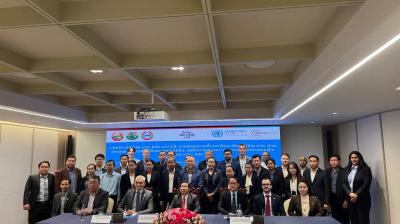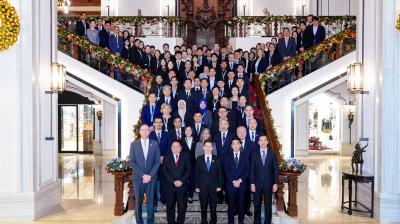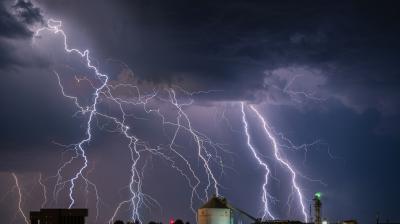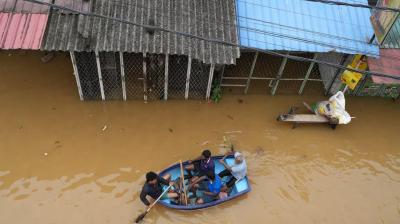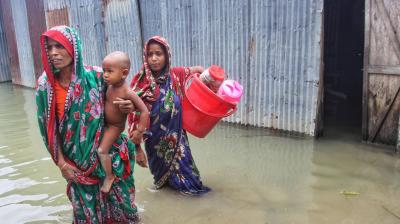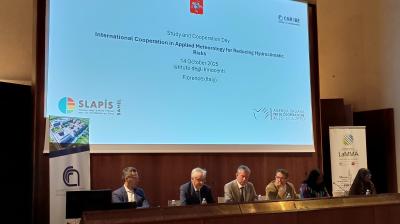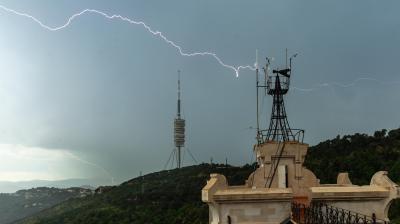Celeste Saulo meets Prime Minister of Ethiopia, President of Kenya
A WMO delegation led by Secretary-General Celeste Saulo met with H.E. Abiy Ahmed Ali, Prime Minister of the Federal Republic of Ethiopia, and H.E. Dr. William Ruto, President of the Republic of Kenya, for high-level bilateral discussions on strengthening meteorological and climate services and championing the Early Warnings for All initiative.
The meetings occurred during an official visit to Ethiopia and Kenya, which host a WMO regional and sub-regional offices, and which are important hubs for the African Union Commission and the United Nations.
“Accurate data and early warning systems are essential for building climate resilience and achieving sustainable development. We are proud to contribute meaningfully to the global climate agenda and to play a critical role in our region,” said President Ruto.
“By working with the private sector and development partners, and leveraging the expertise of the World Meteorological Organization, we aim to enhance our national capacity by modernising essential equipment and technical infrastructure. We look forward to deepening this vital partnership for the benefit of our region and the world,” President Ruto wrote on X after the meeting at State House, Nairobi.
Kenya is one of the 24 African nations which are actively implementing the Early Warnings for All (EW4ALL) initiative. This aims at ensuring that by 2027, all people on Earth are protected by early warning systems as envisioned by United Nations Secretary-General Antonio Guterres.
Ethiopia is also playing a pivotal role in Early Warnings For All, being the first African country to host a national consultation and develop a comprehensive roadmap. It also has in place a functional National Framework for Climate Services.
Ethiopia also plays a pivotal role in the sustainable and cooperative management of transboundary water resources, especially in the Blue Nile Basin. Ethiopia is at the forefront of WMO’s digital modernization in Africa.
Ethiopia is a key beneficiary of numerous WMO-supported projects that enhance climate resilience, including:
- Systematic Observations Financing Facility: a planned US$ 9.9 million SOFF Readiness and Investment will upgrade 16 surface weather stations, and establish 13 new ones, including 3 upper-air stations, to allow Ethiopia to become one of the first countries in Africa to reach the Global Basic Observing Network compliance phase by 2027/2028.
- CREWS Horn of Africa Project seeks to build regional capacity.
- Water at the Heart of Climate Action
Celeste Saulo emphasized WMO’s commitment to supporting the respective National Meteorological and Hydrological Services in delivering timely, accurate, and actionable weather and climate information to safeguard lives, livelihoods, and national development.
“WMO is cognizant of the critical role of Meteorological services to any nation’s stability and growth. It is essential that governments fully support their meteorological institutions to provide timely early warnings and climate services that inform critical decisions in agriculture, health, water, energy, and disaster management,” she said.
Africa stands as one of the world’s most susceptible continents to climate extremes and currently, only 40% of the African population has access to early warning systems for weather, climate, and water extremes, according to WMO's Performance Monitoring System.
The escalating intensity and frequency of extreme climate poses significant challenges to Africa's socio-economic development.
To meet the challenge, an Early Warning for All initiative in Africa Action Plan has been developed. The Action Plan is aligned with Agenda 2063, ‘The Africa we want’ and the Africa Climate Change Strategy.
“The Government of Kenya recognizes the vital role played by meteorological services in disaster risk reduction, climate adaptation, and sustainable development. We remain committed to strengthening these services to ensure no one is left behind,” said Hon. Dr. Deborah Mlongo Barasa, Cabinet Secretary, Ministry of Environment, Climate Change and Forestry.
“This visit affirms Kenya’s partnership with the WMO and our joint commitment to providing timely and accurate weather and climate information to all,” noted Dr. David Gikungu, Permanent Representative of Kenya with WMO and Director of the Kenya Meteorological Department.
The Kenya Meteorological Department also hosts WMO supported regional centers, namely: Regional Specialized Meteorological Center, Regional Instrument Center, Regional Telecommunication Hub, Institute for Meteorological Training and Research, and Regional WIGOS Center which support the East Africa sub region.
During the visit to Ethiopia, Celeste Saulo and WMO’s Assistant Secretary-General Thomas Asare inaugurated a WMO’s new regional headquarters at Ethiopia’s Meteorological Institute.
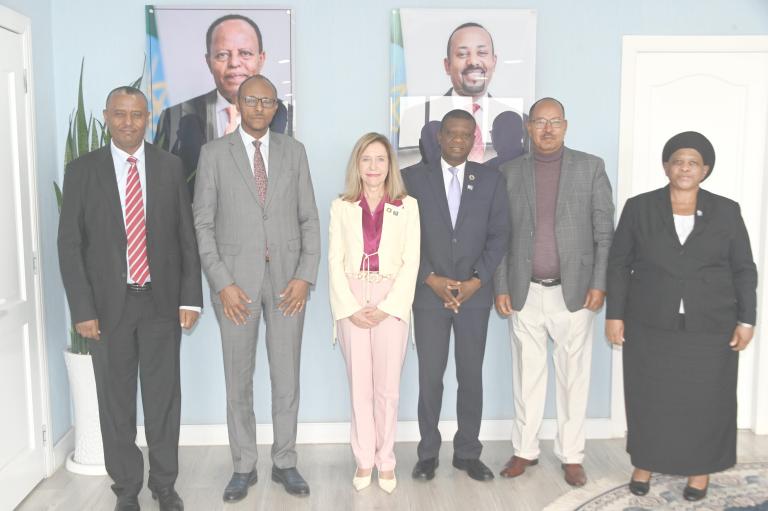
WMO delegation also met with H.E. Dr. Eng. Habtamu Itefa Geleta, Minister of Water and Energy, who is responsible for the Ethiopian Meteorological Institute that is headed by Fetene Teshome, Permanent Representative of Ethiopia with WMO and President of WMO’s Regional Association for Africa.
At the meeting with the African Union Commission (AUC) Chairperson, Mahamoud Ali Youssouf, stronger collaboration on Early Warnings for All was discussed. Other strong partnership noted with AUC included collaboration with African Ministers' Council on Water, AU's African Water Investment Programme, and the African Ministerial Conference on Meteorology to strengthen the African weather and climate institutions through policy.
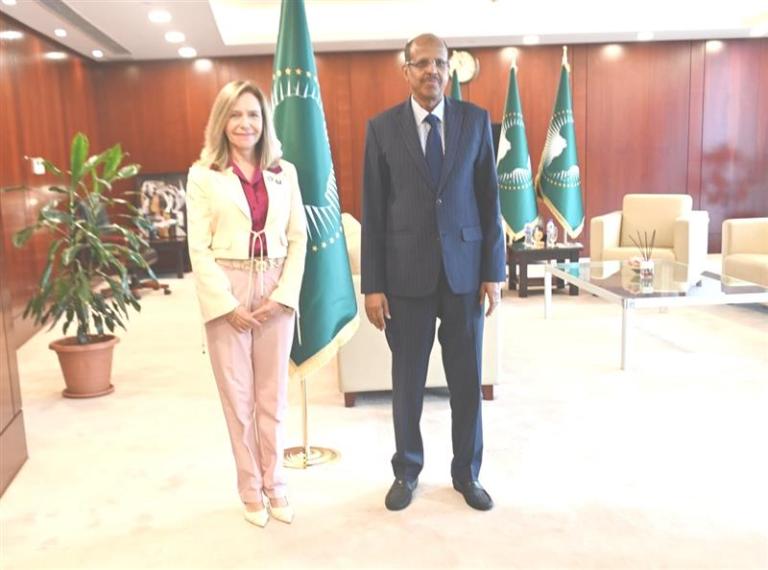
- WMO Member:
- Kenya
- Region:
- Region I: Africa


